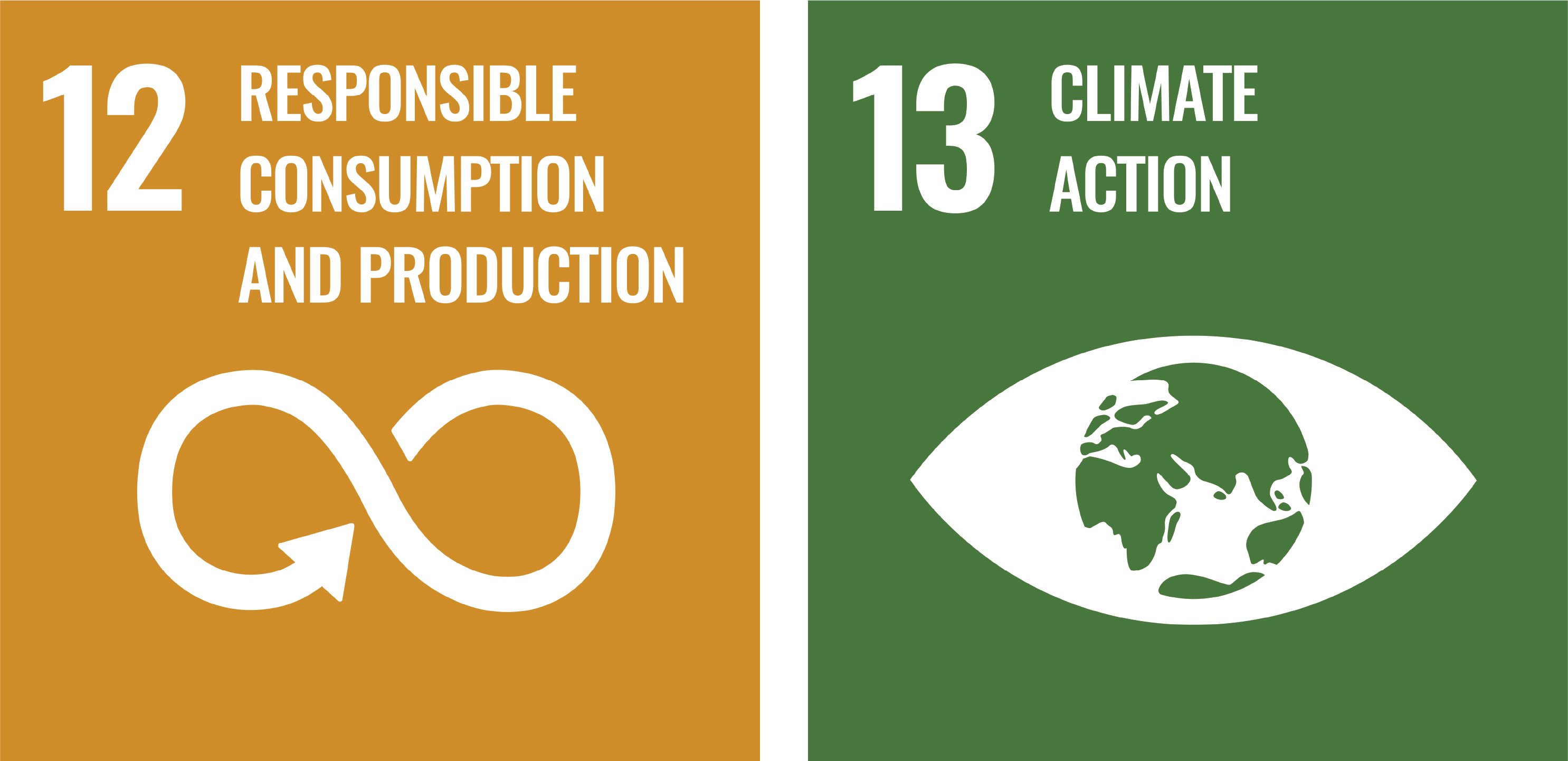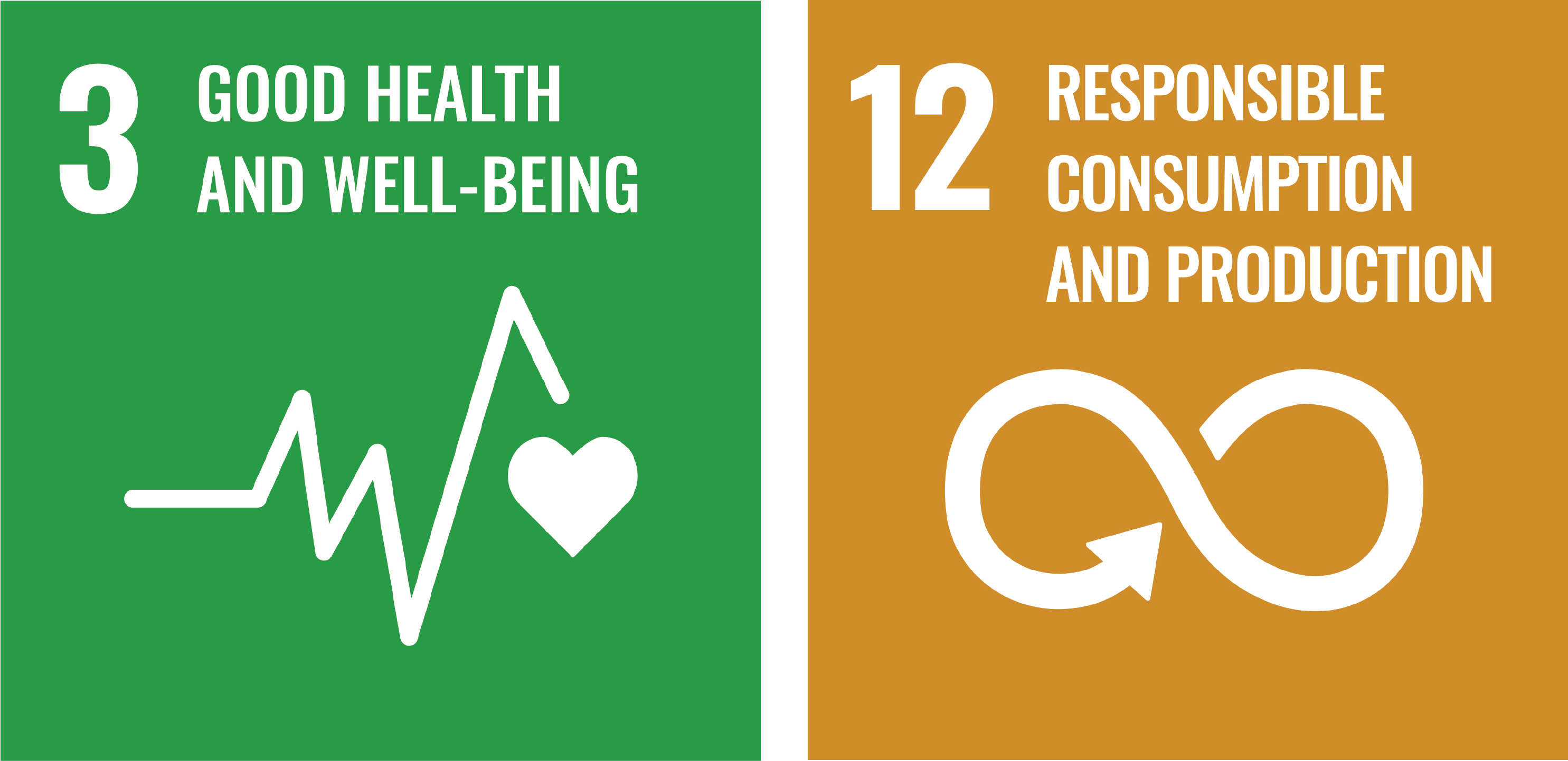- Home
- Sustainability
- Materiality Issues (Important Issues)
Materiality Issues (Important Issues)
- Materiality Issues to be Addressed by J. Front Retailing and commitment
- 2024-2026 Medium-term Business Plan
- Materiality Commitment
- Identification and Review of Materiality Issues
- Linkage to Officer Remuneration
- List of Actions for Each of the 7 Materiality Issues FY2021 to FY2023
- List of Actions for Each of the 5 Materiality Issues FY2018 to FY2020
- Materiality Initiatives
Materiality Issues to be Addressed by J. Front Retailing and commitment
In formulating our Medium-term Business Plan that started in 2024, J. Front Retailing has proposed a
vision of society in 2030. We have concluded that the values we wish to provide to society through our
business activities are “Co-creation of Excitement,” “Co-prosperity with Communities,” and “Co-existence
with the Environment.” By sharing these values with our stakeholders, we will achieve sustainable growth
as a Group.
Based on this, we have reviewed our materiality and identified five themes. Rather than merely resolving
issues, we will integrate materiality initiatives with our business strategy to link materiality to
corporate growth. For this reason, we have changed to more proactive language based on the belief that
the enthusiasm and actions of every employee are even more important than ever.
J. Front Retailing will integrate sustainability and business strategies to realize “Well-Being Life”
for all stakeholders through our commitment to “CSV (Creating Shared Value)”.
| Materiality | Commitment |
|---|---|
|
Adding excitement to life |
Amidst diversifying values, JFR will provide places and spaces for new encounters with goods and things that stir people's hearts, and propose well-being and future lifestyles that are fulfilling and exciting for every consumer. |
|
Enhancing community vitality |
We will strengthen ties with regions, including our seven priority areas, and work with local communities, governments, NPOs, and others to enhance local vitality and create sustainable urban development. In addition, by discovering and communicating the appeal of local areas, we will offer new and exciting experiences for people who gather there. |
|
Creating a society that co-exists |
To achieve the 2050 net zero target, we will work toward both decarbonizing the entire supply chain and promoting a circular economy. At the same time, we will provide opportunities for everyone to contribute to the creation of a sustainable society, not only through our independent efforts, but also by working with our value co-creation partners. |
|
Increasing the number of |
We will share our thoughts and ideas on sustainability with others and establish a partner foundation for the values of “Co-creation of Excitement,” “Co-prosperity with Communities,” and “Co-existence with the Environment” along with fulfilling our social responsibilities, such as human rights due diligence, toward the realization of a sustainable society. |
|
Empowering diverse |
We will realize the sustainable growth of our human resources and the company by creating an environment and structure, including DEI and work-life integration, that enables each employee play an active role and maximize their motivation, ambition, and abilities. |
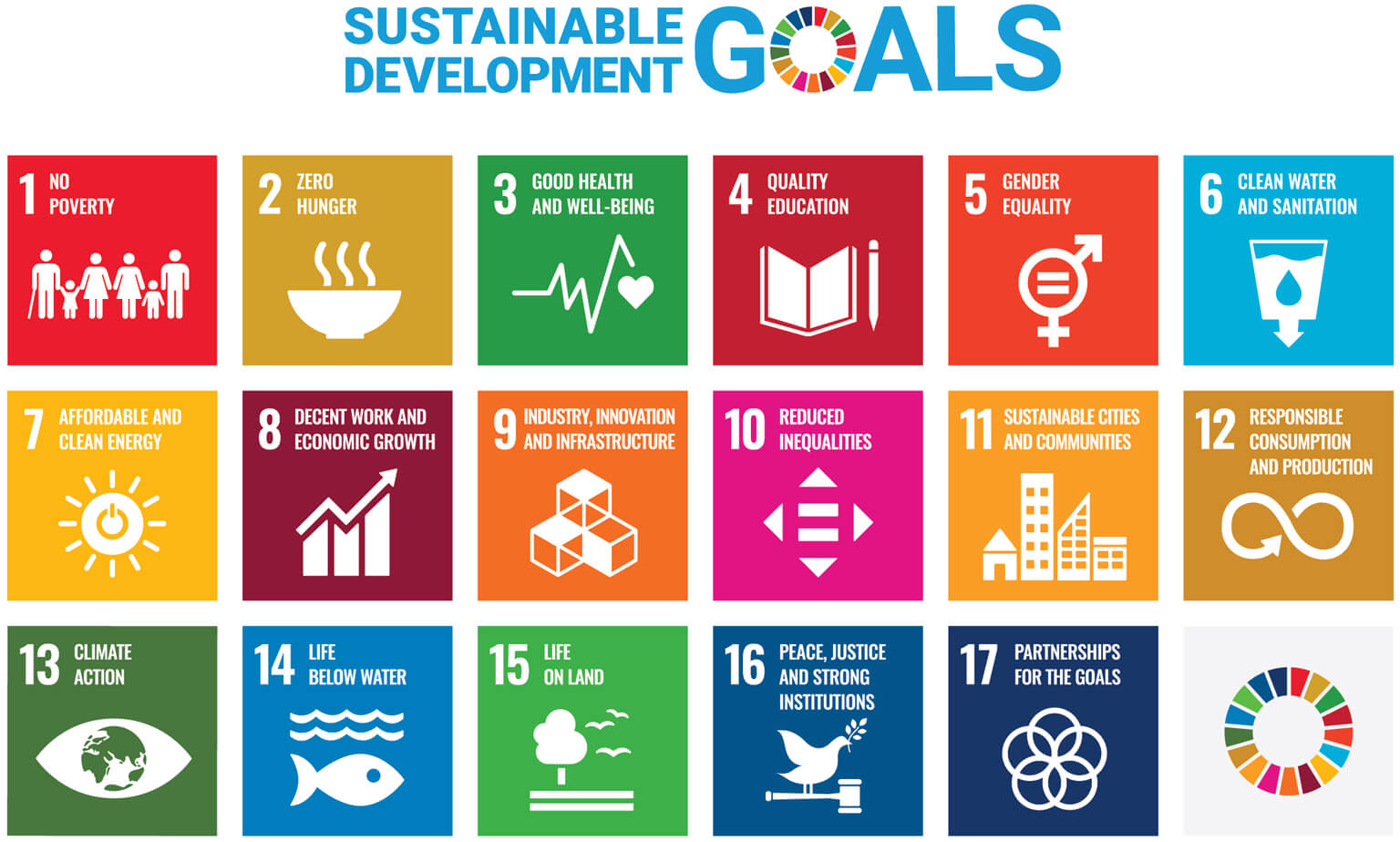
SDGs (Sustainable Development Goals)
Global goals for the period from 2016 to 2030, which are included in the “2030 Agenda for Sustainable
Development” adopted at the United Nations summit in September 2015. They contain 17 goals with 169
targets including “climate action,” “good health and well-being,” “gender equality” and “decent work and
economic growth” and pledge to leave no one behind.
2024-2026 Medium-term Business Plan
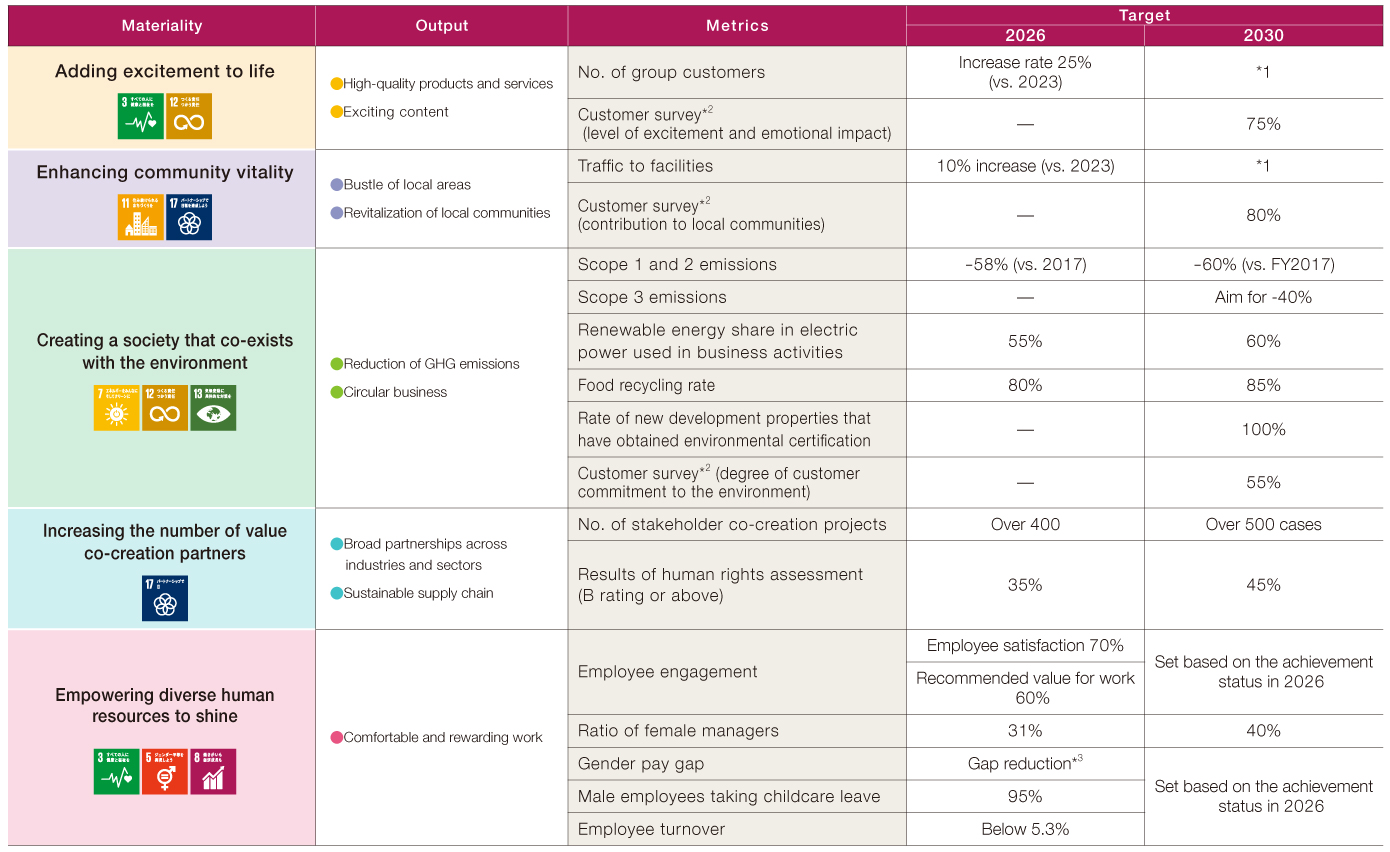
*1. We will consider indicators and targets that can be more closely linked to our business strategy to achieve materiality in our current medium-term business plan.
*2. The gender pay gap for fiscal 2023 was as follows: 65.3% for all workers, 74.4% for regular employees, and 72.7% for non-regular employees.
Identification and Review of Materiality Issues
We strive to build relationships of trust with our stakeholders (customers, shareholders, business partners, employees, local communities, etc.) through our business activities and actively address sustainability issues including environmental and social issues based on the spirit of our Corporate Credo, the Basic Mission Statement, and Group Vision.
In clarifying the relationship between environmental and social issues and the Group's business activities, we have identified materialities that contribute to the “sustainable growth of the company and society” and to a “sustainable society.” After identifying them for the first time in 2018, we review them at the time of formulating medium-term business plans, taking into account the JFR Group material risks and management.
When formulating the 2024-2026 Medium-Term Business Plan, we clarified the positioning of sustainability and our efforts regarding the issue since 2018. The following perspectives were reviewed while backcasting from our vision of society in 2030.
(2024 Perspectives for Review)
・Changes in the external environment from an ESG perspective
・Key JFR Group risks in the next Medium-term Business Plan
・Stakeholder opinions (investor dialogue, employee awareness surveys, customer surveys, etc.)
・Three co-creation values: “Co-creation of Excitement,” “Co-prosperity with Communities,” and “Co-existence with the Environment.”
・Business Strategy
(Positioning of sustainability initiatives in the Medium-term Business Plans)
I FY2018-2020 Laying the Foundation for Sustainability Management
Ⅱ FY2021-2023 Challenging to Integrate Sustainability and Strategy
III FY2024-2026 Integration of Sustainability and Business Strategy
Linkage to Officer Remuneration
The Company has established the following non-financial metrics for determining performance-linked stock-based remuneration in our Officer Compensation Policy. These indicators are also aligned with the 2026 KPIs for materiality, clarifying the responsibilities of executive officers toward achieving these targets.
[FY2026 KPIs]
(i) Scope 1 and 2 GHG emissions reduction:70% (vs. FY2017)
(ii) Share of women in management positions: 31%
List of Actions for Each of the 7 Materiality Issues FY2021 to FY2023
We set medium- to long-term goals for each of seven materiality issues and take specific actions. We believe we can contribute to the SDGs (Sustainable Development Goals) proposed by the United Nations by implementing each action.
| Materiality | Long-term Goal | Major Initiatives for FY2021-2023 |
|---|---|---|
| Realization of a decarbonized society
|
【KPIs for 2030】 60% reduction of Scope 1 and 2 GHG emissions (vs. FY2017) Share of renewable energy in total energy consumption: 60% Expansion of in-house generation and consumption of renewable energy◎Net Zero in 2050 |
<Actual Results> Scope 1 and 2 GHG emissions: 43.5% reduction (2022 results/vs. 2017) Ratio of renewable energy: 33.6% (2022 results) <Major Initiatives> Use of renewable energy in stores (2021 to 2023) Switching stores to LEDs and EVs, and introduction of high-efficiency energy-saving equipment when renovating or opening new stores (2021-2023) Establishment of net zero transition plan (Feb 2023) Obtained net zero certification from “Science Based Targets initiative” (Mar 2023) |
| Promotion of circular economy
|
50% reduction of waste including food (vs. FY2019) Total weight of items to be collected via ECOFF for recycling: 3,000t Entry and expansion of sharing, upcycling and other such business areas Expansion of recycling and remanufacturing of end-of-life products |
<Actual Results> 26.7% reduction in waste including food (2022 results/vs. 2019) Total weight of items collected via ECOFF for recycling: 1,468t (as of 2022) <Major Initiatives> Start of fashion subscription business “Another ADdress” (Apr 2021), expansion of business by launching men’s line (Mar 2023), development of sustainable packaging materials (Dec 2023) Demonstration experiment of food loss reduction by AI demand forecasting (Daimaru Tokyo, Aug 2022) Sustainable project with Osaka University of Arts using scrap wood (J. Front Design & Construction, Jul 2023) Joined “Fry to Fly Project” for domestic production of SAF from waste cooking oil |
|
Management of the entire supply chain
|
【KPIs for 2030】 Assessment of JFR Principles of Action for Suppliers with 95% collection rate and 100% penetration rate Aiming for 40% reduction of Scope 3 GHG emissions (vs. FY2017) Establishment of business activities that respect the human rights of suppliers and employees |
<Actual Results> Scope 3 GHG emissions: 5.7% reduction (2022 results/vs. 2017) <Major Initiatives> Conducted first supplier assessment (Oct 2021): 40.6% response rate, 60% penetration rate Shared JFR Principles of Action for Suppliers (PARCO, Dec 2021) Explanatory meeting for suppliers (Daimaru Matsuzakaya Department Stores, Apr 2022) 253 companies participated Revision of human rights risks (May 2022, May 2023) Conducted second supplier assessment (Oct 2023): 50.4% response rate, 78% penetration rate Conducted employee human rights education (Daimaru Matsuzakaya Department Stores, PARCO, Daimaru Kogyo/ Jun and Oct, 2023) Conducted “Business and Human Rights” e-learning for employees (Dec 2023) |
|
Realization of customers’ healthy/safe/secure life
|
【KPIs for 2030】 Consumer awareness and empathy of JFR sustainability activities: 80% Expansion of offerings for ethical consumption in all lifestyles Adding excitement to life by expanding entertainment and wellness businesses Incorporation of the latest technologies for creating resilient stores to prevent disasters and epidemics and providing comfortable spaces with considerations for health |
<Actual Results> Conducted customer survey on sustainability activities: awareness and empathy 66% (Oct 2022) <Major Initiatives> Attracting shops that deal in ethical products Opening of showroom space “asumise” (Daimaru Tokyo/Oct 2021) Opening of healthcare wellness mall Welpa (Shinsaibashi PARCO/Nov 2021) (Urawa PARCO/Feb 2024) Full-scale entry into e-sports business with acquisition of shares in XENOS Opening of Smart Aquarium Shizuoka, the first permanent aquarium in a department store (Matsuzakaya Shizuoka/Apr 2022) “Think Wellness – A Wonderful Marche for the Mind and Body” (Daimaru Kobe/Jan 2023) SDGs initiatives during summer gift giving season (Jun 2023) |
|
Coexistence with local communities
|
【KPIs for 2030】 Development that enhances the appeal of areas by leveraging their unique characteristics and contributes to drawing crowds to the areas Shifting to CSV in stores throughout the Group Local revitalization, including local production for local consumption. through collaborations with local communities in all stores |
<Major Initiatives> Construction starts for Nishiki 3-chome District 25 project (tentative name) (Jun 2022) Construction starts for Shinsaibashi Project (tentative name) (Jan 2023) Opening of HAB@Kumamoto (May 2023) Opening of municipal library (Daimaru Suma/Mar 2021) Start of "Think LOCAL" web magazine (Daimaru Matsuzakaya Department Stores/Aug 2022) “Marine Litter Tile Art Project” between Tsushima City, Nagasaki Pref. and Kyushu Tankentai (Apr 2022) New entry into residential business (Apr 2022) Establishment of J. Front City Development (Mar 2023) Comprehensive collaborative agreement concluded with Kumamoto Prefecture (Hakata Daimaru/Mar 2023) Comprehensive agreement concluded with Kyoto city (Daimaru Kyoto/May 2023) Agreement with Taito City and Local Food Cycling Co. concluded to transform to a recycling oriented lifestyle (Daimaru Matsuzakaya Department Stores) Started plan to support the development of sales channels for small and medium-sized enterprises using the crowdfunding site BOOSTER (PARCO, Oct 2023) Announcement of “Future Co-Prosperity Project” between Kyushu Tankentai and FiNANCiE (Hakata Daimaru/Dec 2023) |
|
Promotion of diversity & inclusion
|
【KPIs for 2030】 Aim for women in management positions: 50% Aim for raising retirement age: 70 Employment rate of disabled people: 3.0% Realization of business growth by use of diverse abilities Development of stores, products and services for diverse customers |
<Actual Results> Women in management positions: 22.2% (2022) Employment rate of disabled people: 2.93% (as of Jun 2022) <Major Initiatives> Establishment of an LGBT-related system and a new LGBT Consultation Desk (Mar 2021) Implemented unconscious bias survey targeting employees (Mar 2022) Implemented women’s empowerment program project (Apr 2022) Start of Action Plan “RED” (Mar 2023) Started “Digital Talent Program” (Aug 2023) Held LGBT-related events (Daimaru Shinsaibashi, Daimaru Kyoto, Matsuzakaya Nagoya, Nagoya PARCO, Shibuya PARCO/2021-2023) |
|
Realization of work-life integration
|
【KPIs for 2030】 Turnover rate due to childcare and nursing care: 0% Percentage of employees taking childcare leave: 100% Employee satisfaction rate: 80% Improvement of productivity by creating organization where employees can work anytime and anywhere |
<Actual Results> Turnover rate due to childcare and nursing care: 1.8% (2022 results) Percentage of male employees taking paternity leave: 68% (2022 results) <Major Initiatives> Expansion of telework system (2021) Formulation of J. Front Retailing Health Declaration (Sep 2021) Expansion of side work (JFR head office, PARCO/Jun 2021) Implementation of side work (Daimaru Matsuzakaya Department Stores/Sep 2023) Introduction of system that allows employees to use 20% of working hours for internal collaboration (PARCO/Apr 2021) Expansion of annual holidays, shortening of prescribed annual working hours (Daimaru Matsuzakaya Department Stores/2022) |
List of Actions for Each of the 5 Materiality Issues FY2018 to FY2020
| Long-term targets | Actions 2018 to 2020 | |
|---|---|---|
Contribution to a low-carbon society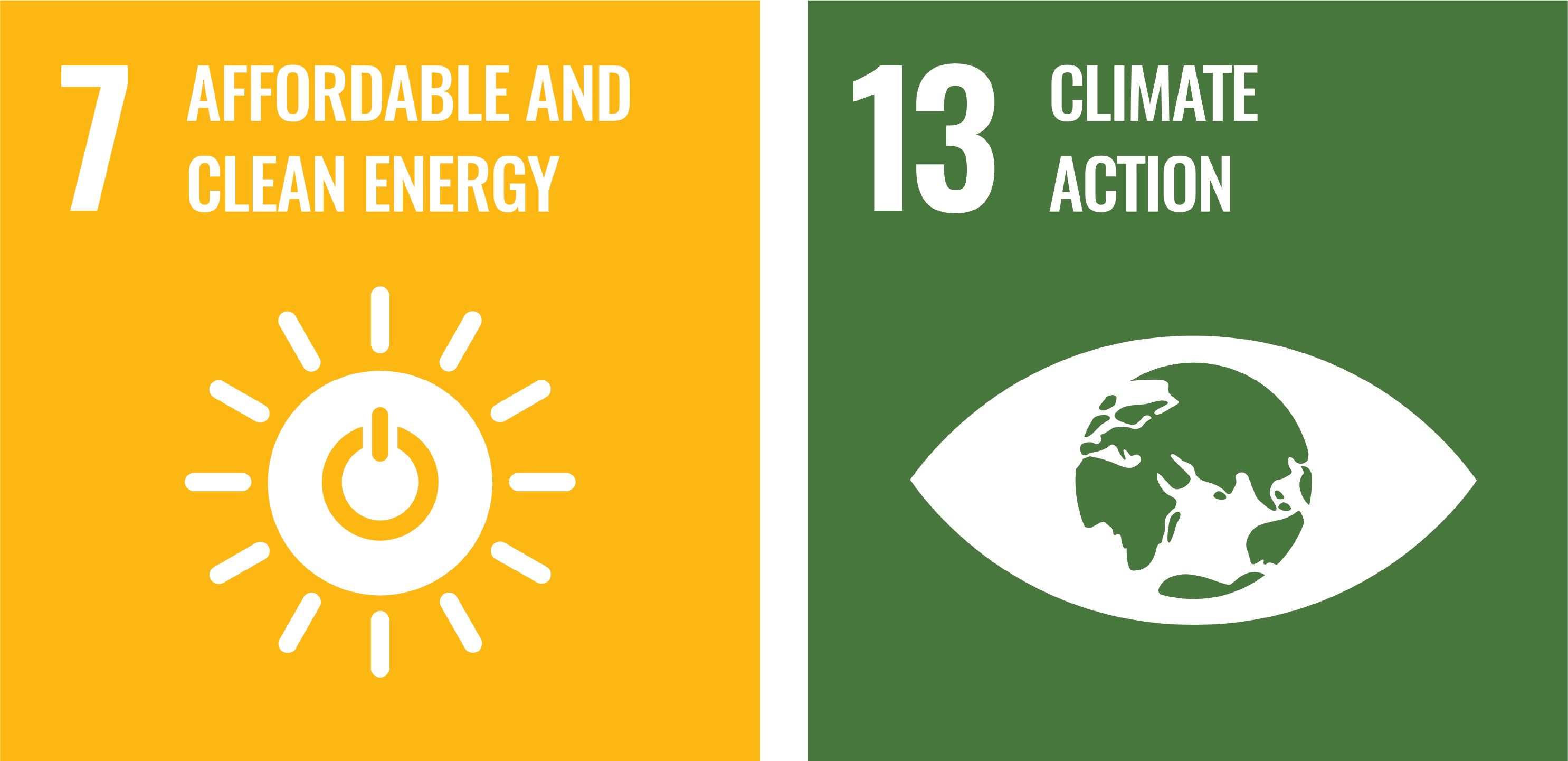 7. AFFORDABLE AND CLEAN ENERGY 13. CLIMATE ACTION |
●2030 ●2050 *Scope 1: Direct GHG emissions from the company (fuel combustion) *Scope 2: Indirect GHG emissions from use of electricity and heat supplied by other companies |
●Participated in Japan Climate Initiative (September 2018) ●Expressed support for the recommendations of the Task Force on Climate-related Financial Disclosures (TCFD) (May 2019) ●The Group's medium- to long-term GHG emissions reduction targets were approved by the
Science Based Targets initiative (SBTi) ●Joined Renewable Energy 100 (RE100) (October 2020) ●Switched to renewable energy ・Daimaru Matsuzakaya Department Stores head office building, Daimaru Shinsaibashi store,
Ikebukuro PARCO (P'PARCO), Chofu PARCO ●Transition of the company fleet (vehicles used for sales activities by Out-of-Store
Sales Division of Daimaru Matsuzakaya Department Stores) to EVs (began in October
2019) ●Rated A by the Carbon Disclosure Project (CDP) (December 2020) ●Switched to LED lighting ●Installed energy-efficient equipment at the time of the replacement of electrical equipment, renovation and new store opening ●Disclosed information in accordance with the TCFD recommendations in the Securities Report (May 2020) ●Reduced GHG emissions (Scope 1 and 2) by 16.3% in FY2019 compared to FY2017 |
Management of the entire supply chain 7. AFFORDABLE AND CLEAN ENERGY 13. CLIMATE ACTION |
●2030 ●2030 *Scope 3: Indirect emissions not included in Scope 2 (emissions in the entire supply chain) |
●Formulated the Principles of Action for Suppliers (June 2019) ●Efforts to share the Principles of Action for Suppliers ・Sent from each operating company to the representatives of suppliers (sent to 9,444
companies as of February 2020) ・Daimaru Matsuzakaya Department Stores held briefing sessions on the Principles of Action
for Suppliers. ●Received third-party assurance for Scope 3 GHG emissions in FY2019 (July 2020) ●Switched to environmentally friendly packaging materials ・Paper bags made from FSC-certified materials and plastic bags for food products containing 30% biomass (September 2019) ●ECOFF, one of Think GREEN initiatives to create a circular society ●Efforts to go paperless |
Coexistence with local communities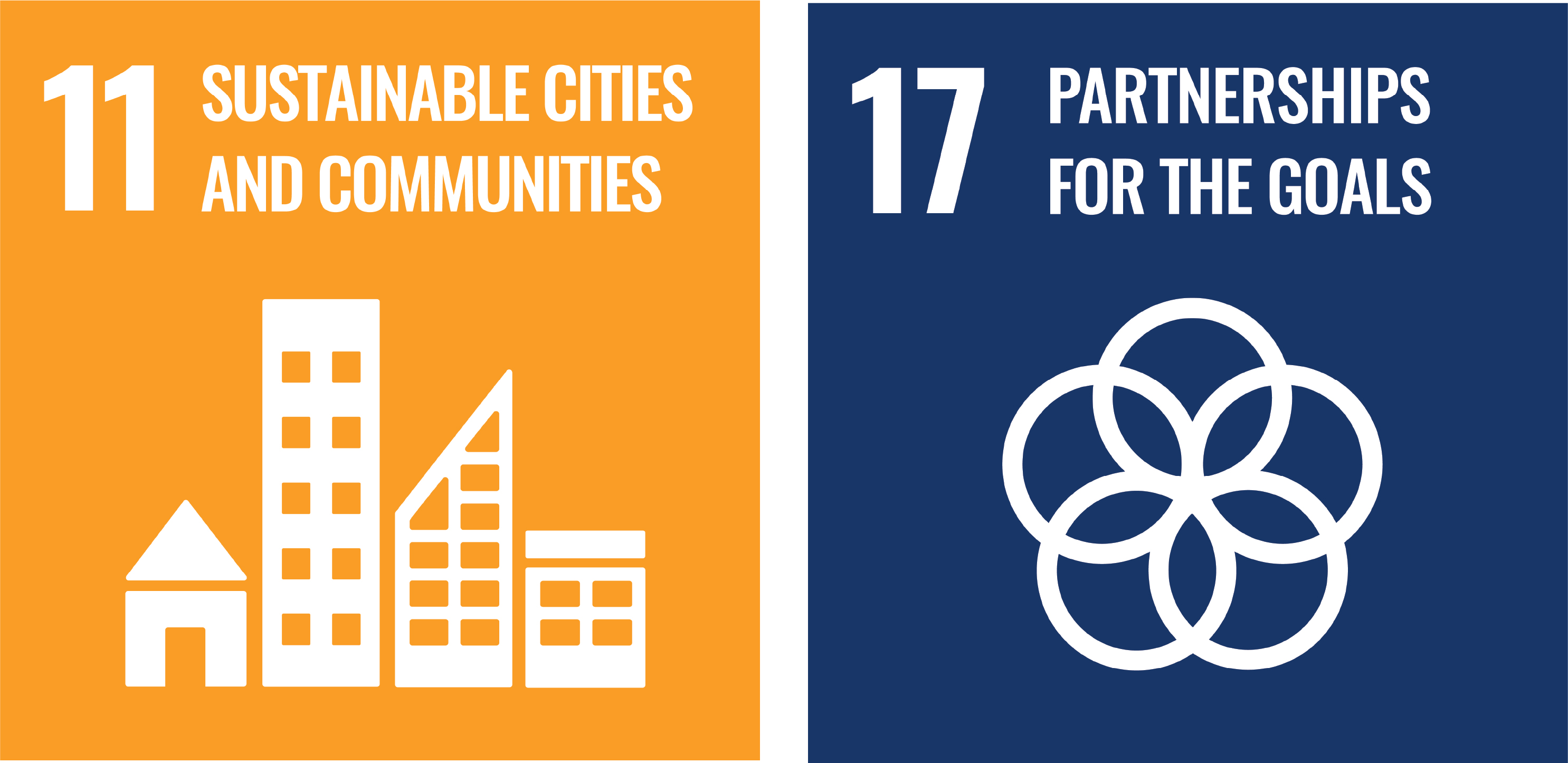 11. SUSTAINABLE CITIES AND COMMUNITIES 17. PARTNERSHIPS FOR THE GOALS |
●2050 |
●Promoted urban development ●Expanded local production for local consumption (chisan-chisho) ●Regional revitalization through crowdfunding ●Created safe and secure store environment |
Promotion of diversity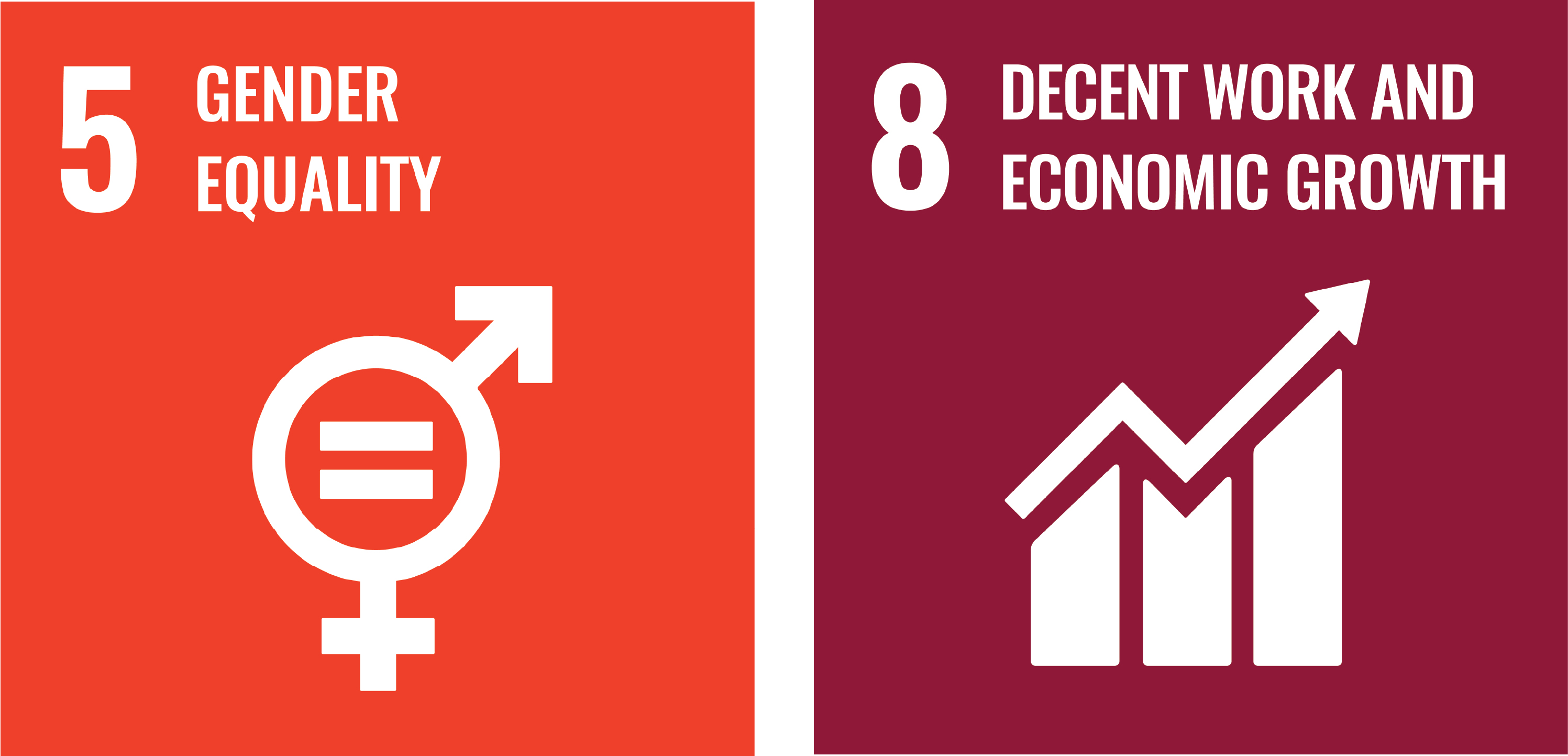 5. GENDER EQUALITY 8. DECENT WORK AND ECONOMIC GROWTH |
●Ratio of women in management positions ●2030 |
●Signed the Women’s Empowerment Principles (the principles of action for companies that are proactively working to promote women's empowerment) (October 2018) ●Initiatives for women's empowerment ・Ratio of women in management positions (19.9% in FY2020) ●Promoted senior empowerment ・Extended the retirement age to 65 in March 2020 (J. Front Retailing, Daimaru Matsuzakaya Department Stores, JFR Card, Daimaru Kogyo, JFR Information Center) ●Efforts to employ disabled people ・Ratio of employees with disabilities as of June 2020: 2.21% ●Revised the Human Rights Policy ●Initiatives for lesbian, gay, bisexual and transgender (LGBT) issues |
Realization of work-life balance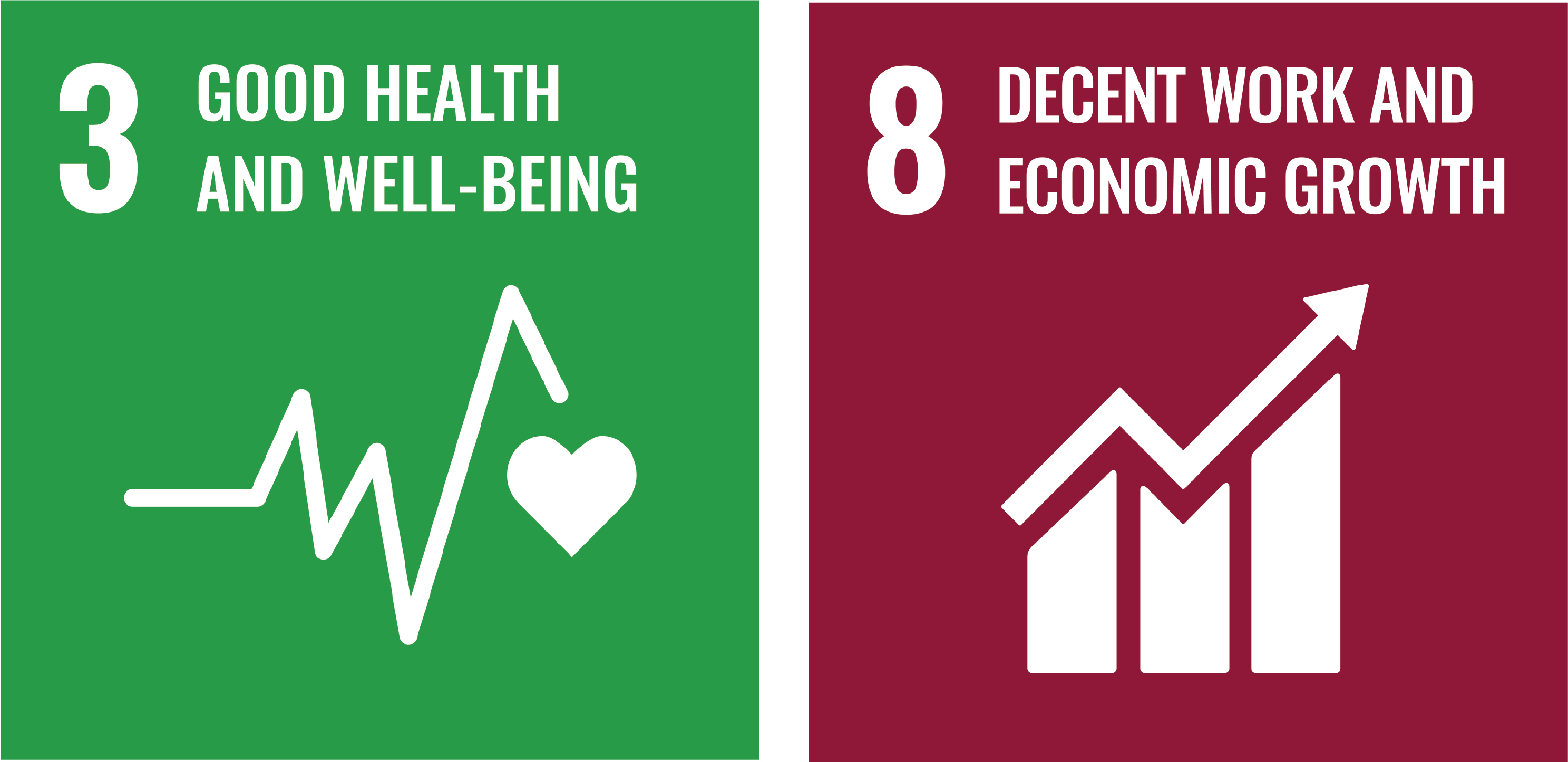 3. GOOD HEALTH AND WELL-BEING 8. DECENT WORK AND ECONOMIC GROWTH |
●2030 ●2025 |
●Efforts to improve productivity ●Promoted the participation of men in childcare ・18 male employees of Daimaru Matsuzakaya Department Stores took childcare leave in
FY2019 ●Prevented employees from leaving due to childcare and family care ・Ratio of return from childcare leave In FY2019 (Daimaru Matsuzakaya Department Stores): 89.5% ●Use of technologies ●Promoted health management |
【Group promotion system】
Established the Sustainability Committee (2019), managed the progress of ESG Initiatives at each
operating company
【Establishment of various policies】
Formulated the Sustainability Policy, Eco Vision, Social Vision (2018)
【Support for initiatives】
Signed the United Nations Global Compact (2018)
【Internal and external communication】
Started ESG presentation for institutional investors (2018)
Issued the Sustainability Report (2019), opened the ESG Site as an internal penetration tool (2019)
- Aiming to Achieve Net Zero by 2050
- Environment Management System
- Information Disclosure in Line with TCFD Recommendations
- The Circular Economy the Group aims to create
- Proposal for Environment-Friendly Lifestyles
- Reduction of Wastes and Water Usage
- Information Disclosure in line with TNFD Recommendations (Biodiversity Conservation)
- Environmental Data
- Acquisition of Third-Party Assurance
- Human resources Strategy
- Promoting Women's Empowerment
- Employment of Disabled People
- Promotion of the Elderly Empowerment
- Actions on LGBT Issues
- Human Rights and Labor-Management Relations
- Initiatives to Realize Work-Life Integration
- Promoting Health and Productivity Management
- Support to Help Employees Develop Their Careers
- Social Data
- Acquisition of Third-Party Assurance

